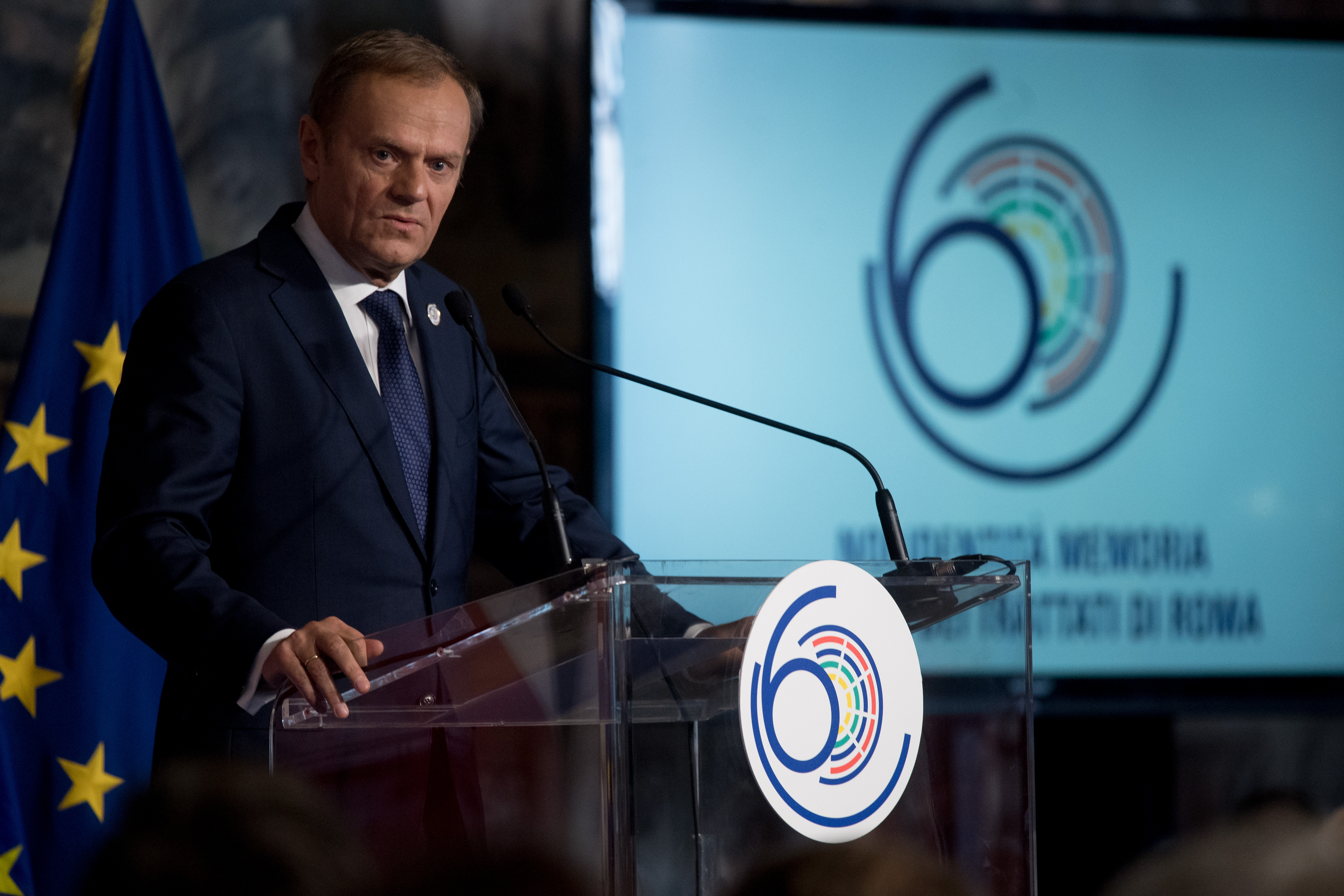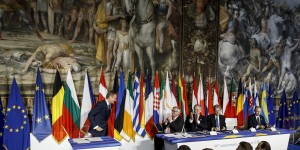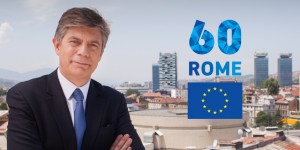It is impossible to be a guest of the Senato della Repubblica and not feel the history trapped inside the walls of the Palazzo Madama. We are reminded, not only of the political drama that everyone lives now every single day, but also centuries of great events that are Europe’s birth certificate. For example, Cesare Maccari’s Cicerone denuncia Catilina – one of the masterpieces decorating the Senate walls – is absolutely perfect for today. It is a political allegory of the struggle of democratic institutions against populism, and the triumph of one over the other.
This reminds us, first, that the strength of any political community depends on its will to survive, on its vigour and cleverness. And second, that in the Darwinian political struggle, words always were, and always will be, the most powerful weapons.
Cicero said, “Freedom is participation in power”. Even the ancient Greeks and Romans wrestled with the problem of what it truly means to be free. Sixty years ago, statesmen from six countries decided that the only true freedom was the freedom to act together. In other words, sovereignty meant having a seat at the table. That is why in 1957 the Treaty of Rome was signed. It so happens that I was born in the same year, and that the reality built on the Treaty of Rome is my whole life. And I don’t think I have to tell you how important it is for me personally to be here today with you.
Of course, everything looks more noble, deliberate and calculated from today’s perspective. There is a tendency to remember those who signed the Treaty of Rome as political geniuses and evangelists of a United Europe. The truth is that they were leaders with their own private doubts, under incredible pressure from events and in a state of profound vulnerability. The collective powerlessness of Europe after the Second World War forced them together. The alternatives were extremely unattractive. And the horrors of the war’s destruction were still clear to see every day.
The vulnerability of these frightened European countries gave them the humility, clarity and great wisdom to come together to sign the Treaty of Rome. That began a process that has since brought many more countries back to freedom and prosperity again, east and west. It has helped us to understand that when Europe is weak, her individual countries will be weak. If Europe is strong, her Member States are strong. Only by being united together, can we realise our own sovereignty – be truly free – in the wider world. That was true then, and it is true today. It will be true in another sixty years.
The Treaty of Rome has triumphed, also because it was created and delivered by governments based on democratic consent. National parliaments – of which you are the representatives – therefore lent their powers to the European community with a message: “Please deliver in our common interest”. This was a loan which has since been repaid with interest, even if there are disappointments and delays.
Someone said once “Europe is like a tree. It grows every day but you never see it growing.” It is a rather romantic sentiment, but still true. From the seed of the Treaty of Rome grew changes that have altered the world around us so much, that most people can no longer remember what things were like before. The Treaty gave us open minds and open societies. And of course the world’s largest market for our prosperity. As a young man growing up under the shadow of the Iron Curtain, these things were almost impossible for me to imagine, although I had my dreams that one day they could happen.
Next week’s anniversary is a time for sober reflection as much as celebration. Even if we can see that our economic wounds are healing slowly, many people still despair about the scale and number of our current challenges. The greatest is the departure in a couple of years of Britain as an EU Member State. The best response to such tough times is to recapture the humility, clarity and the wisdom of the original signatories. Only then can we make the right choices about the future. Because the past teaches us that Europe is at its best and most creative when it is at its most vulnerable, however paradoxical it may sound. It delivers much more with modest, patient ambition than with grand visions.
This is one reason why I am happy that the President of the De Gasperi foundation, Maria Romana De Gasperi, was here today with us. Now is the perfect time to recall her father’s famous words: “The future will not be built through force, nor the desire to conquer, but by the patient application of the democratic method, the constructive spirit of agreement and by respect for freedom.” Perhaps these words are not dramatic enough in the age of politics by Twitter. But I still appreciate their truth and power. I still believe they are enough to guide us from here. Thank you. Grazie




